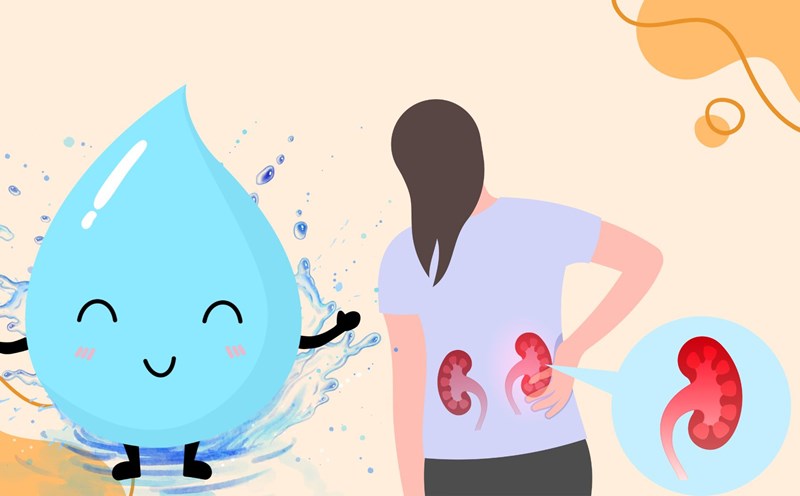Eating the wrong vegetables - damages the liver and kidney detoxification duo
According to nutritionists, when kidney function is impaired, the ability to excrete potassium through urine is reduced. absorbing too many potassium-rich vegetables such as water spinach, amaranth, spinach, etc. can lead to increased potassium in the blood, a dangerous condition that disrupts the heart rate, and even cardiac arrest. Similarly, for people with liver disease, eating vegetables containing too many oxalates, pesticides or potassium also causes the liver to overwork its metabolism. A low-calcium diet helps maintain electrolyte balance and reduce the metabolic burden on the kidneys.
Nutritionist Sharon Palmer, a member of the US Institute of Nutrition and Dietetics (AND), commented with Aboluowang: If properly selected, low- potassium coffee can act as a natural drug to help protect the kidneys and improve liver function.
Recommended low- potassium vegetables
Vegetables with a low potassium content of less than 150 mg/100 g are considered safe for people with kidney and liver disease. In particular, squash (squash) is considered a food that both helps to hydrate and cool the liver, and only contains about 100 mg of potassium per 100 g. Squash can be boiled, cooked in soup or stewed with lean meat to cool the body and reduce edema.
Su and cabbage are also safe, low- potassium, and rich in fiber, which helps support digestion and reduce constipation, a common symptom in people with liver and kidney failure. In addition, white mustard (chard) and white radish contain few oxalates, are easy to digest, and have the effect of supporting detoxification and reducing inflammation.
According to the US National kidney Federation (NKF), patients should boil or steam vegetables, then discard the boiling water to significantly reduce the remaining potassium. Vegetables should be processed lightly, without being stir-fried with a lot of oil, without adding sweet flour or rich fish sauce.
Eat the right amount, the right way
Although it is a vegetable that is "good for the kidneys and liver", patients should not eat too much. The diet should divide vegetable meals into small portions, combined with easily digestible starches such as white rice and diluted congee, helping to reduce the work of filtering and metabolizing the liver and kidneys in the evening.
Expert Sharon Palmer emphasized: The key is balance. A light meal with low-calorie vegetables, properly prepared, is a solid foundation for maintaining long-term liver and kidney health".











